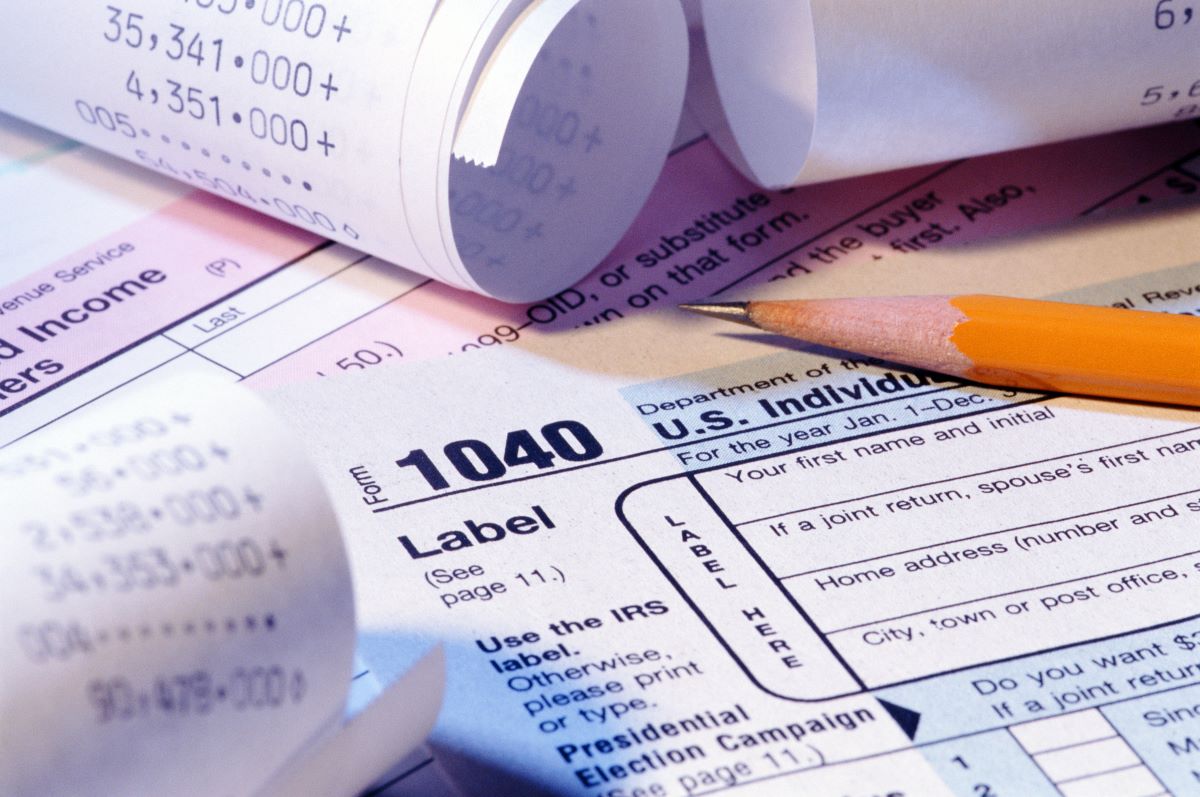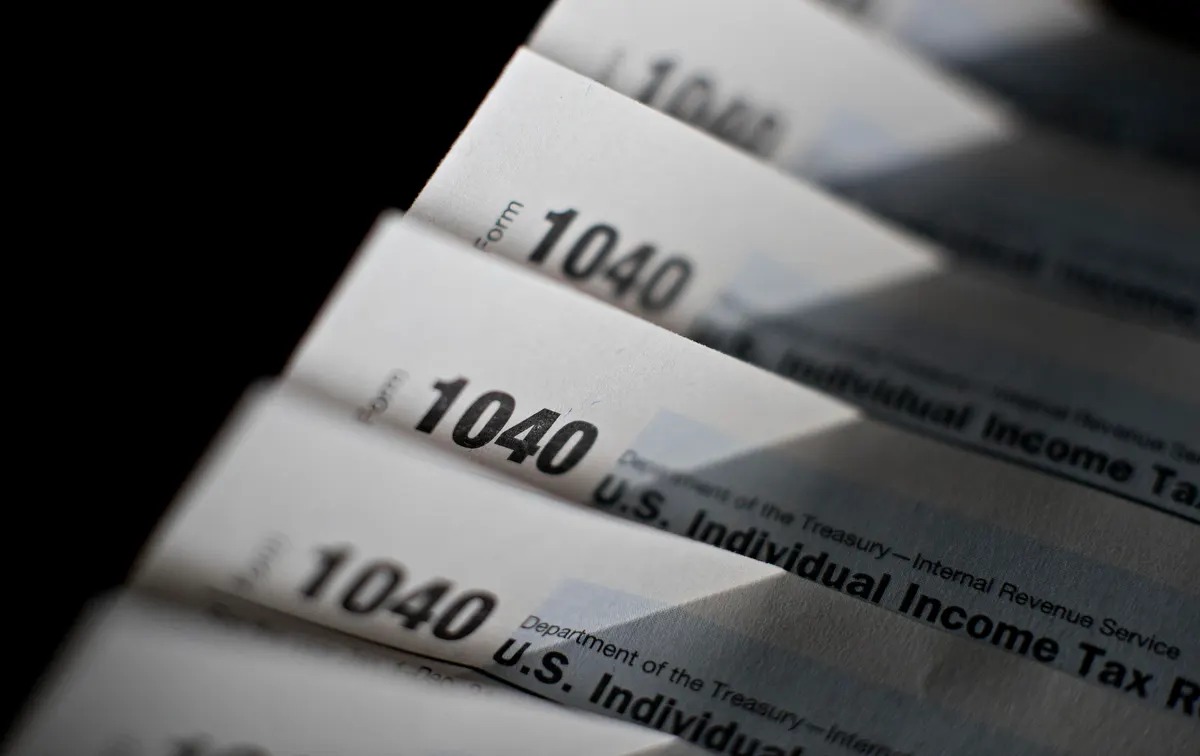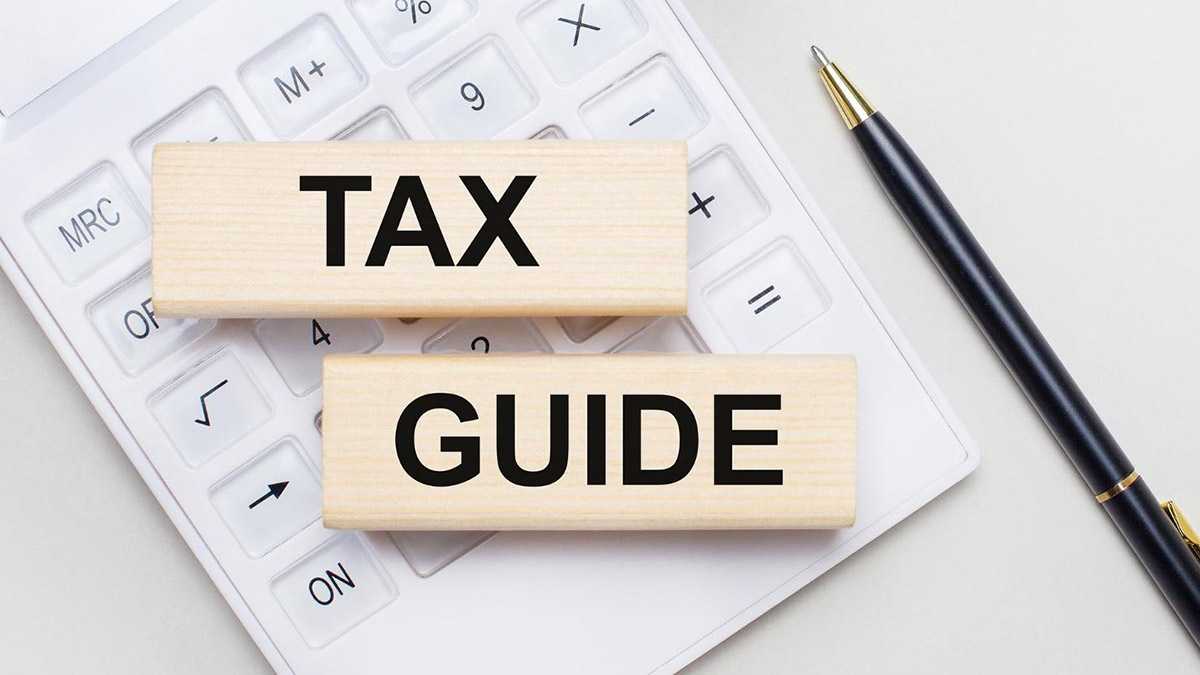

Finance
Who Has To File An Income Tax Return 2016?
Published: October 29, 2023
Learn about who is required to file an income tax return in 2016 and stay informed on the latest finance guidelines.
(Many of the links in this article redirect to a specific reviewed product. Your purchase of these products through affiliate links helps to generate commission for LiveWell, at no extra cost. Learn more)
Table of Contents
- Introduction
- Filing Requirements for Single Individuals
- Filing Requirements for Married Individuals
- Filing Requirements for Head of Household
- Filing Requirements for Dependents
- Filing Requirements for Self-Employed Individuals
- Filing Requirements for Business Owners
- Filing Requirements for Investors
- Filing Requirements for Retirees
- Filing Requirements for Non-Resident Aliens
- Conclusion
Introduction
Filing income tax returns is an essential part of financial responsibility for individuals. This annual obligation ensures that individuals report their income, claim deductions, and fulfill their tax obligations to the government. However, not everyone is required to file an income tax return. The criteria for filing vary depending on factors such as marital status, total income, and sources of income.
In this article, we will explore who has to file an income tax return for the year 2016. It is important to note that tax laws and filing requirements may change over time, so it is always advisable to consult with a tax professional or refer to the latest guidelines from the tax authorities.
Understanding your filing requirements is crucial as failure to file when required can result in penalties and other consequences. On the other hand, filing when not required can unnecessarily burden individuals with paperwork and potential liabilities. By gaining clarity on who needs to file, you can ensure compliance with tax laws and optimize your financial planning.
In the following sections, we will delve into the filing requirements for different categories of individuals, including single individuals, married individuals, head of household, dependents, self-employed individuals, business owners, investors, retirees, and non-resident aliens. Let’s explore the specific criteria for each category to determine if you need to file an income tax return for the year 2016.
Filing Requirements for Single Individuals
If you are a single individual filing your taxes for the year 2016, the filing requirements are based on your age, income level, and filing status. Let’s explore the criteria to determine if you need to file an income tax return:
- Under 65 years old: If you are under the age of 65 and your gross income for 2016 exceeds $10,350, you are required to file an income tax return.
- 65 years old or older: If you are 65 years old or older, the filing threshold increases. For tax year 2016, if you are single and your gross income exceeds $11,900, you need to file an income tax return.
It is important to note that these thresholds are for individuals who are not claimed as dependents on someone else’s tax return. If you are claimed as a dependent, the filing requirements may differ. Additionally, if you had net earnings from self-employment of $400 or more, you are subject to self-employment tax and may need to file an income tax return.
Even if your income falls below the filing threshold, it may still be advantageous to file a tax return. Filing can enable you to claim tax refunds, receive certain tax credits, and establish a tax record.
Remember to accurately report all sources of income, including wages, tips, dividends, interest, rental income, and any other applicable income. Keep in mind that the filing requirements for single individuals may change from year to year, so it is essential to stay informed about the latest tax guidelines and consult with professionals if needed to ensure compliance.
Filing Requirements for Married Individuals
If you are married and filing your taxes for the year 2016, the filing requirements depend on various factors such as your filing status, income level, and age. Let’s explore the criteria to determine if you need to file an income tax return:
- Married Filing Jointly: If you are married and choose to file a joint tax return with your spouse, the filing thresholds are higher compared to filing as a single individual. For tax year 2016, if you and your spouse are both under 65 years old and your combined gross income exceeds $20,700, you are required to file an income tax return.
- 65 years old or older: If either you or your spouse is 65 years old or older and you are filing jointly, the filing threshold increases. For tax year 2016, if you and your spouse are both 65 years or older and your combined gross income exceeds $23,200, you need to file an income tax return.
It is important to note that these thresholds apply to couples who are not claimed as dependents on someone else’s tax return. If you or your spouse is claimed as a dependent, the filing requirements may differ.
If you choose to file separately instead of filing a joint tax return, the filing requirements become more complex. For tax year 2016, if you are married filing separately and your gross income exceeds $4,050, you are required to file an income tax return. Keep in mind that filing separately may affect your eligibility for certain tax deductions and credits.
Regardless of your filing status, it is crucial to accurately report all sources of income and ensure compliance with tax laws. Keep records of your income, expenses, and any deductions or credits you plan to claim.
Filing jointly can have its advantages, such as potentially lower tax rates and eligibility for certain tax benefits. However, each individual’s financial situation is unique, so it is advisable to consult with a tax professional or utilize tax software to determine the most advantageous filing status for you and your spouse.
Filing Requirements for Head of Household
If you qualify as a head of household, your filing requirements for the year 2016 may differ from those of single or married individuals. The head of household status is available to individuals who are unmarried or considered unmarried and have a qualifying dependent. Let’s explore the criteria to determine if you need to file an income tax return:
- Under 65 years old: If you are under the age of 65 and filing as head of household, your gross income for 2016 must exceed $13,350 to require filing an income tax return.
- 65 years old or older: If you are 65 years old or older and qualify as head of household, the filing threshold increases. For tax year 2016, if you are 65 or older and your gross income exceeds $14,900, you need to file an income tax return.
It is important to note that these thresholds apply to individuals who are not claimed as dependents on someone else’s tax return. If you are claimed as a dependent, the filing requirements may differ.
To qualify as head of household, you must meet specific criteria, including being unmarried or considered unmarried on the last day of the tax year, paying more than half the cost of keeping up a home for yourself and a qualifying person, and having a qualifying person who lived with you for more than half the year.
Keep in mind that accurately reporting all sources of income, including wages, self-employment income, rental income, and any other applicable income, is crucial for compliance. Additionally, claiming the appropriate deductions and credits related to your filing status and qualifying dependents can help optimize your tax situation.
If you have any doubts or need assistance determining your filing requirements or eligibility for the head of household status, consider consulting with a tax professional or utilizing tax software to ensure accurate and compliant tax filing.
Filing Requirements for Dependents
Dependents often have different filing requirements compared to other individuals. Whether you are a dependent or claiming a dependent on your tax return for the year 2016, it is important to understand the specific criteria that determine if a dependent needs to file an income tax return:
- Dependent’s earned income: If you are a dependent, filing your taxes depends on your earned income for the year. For tax year 2016, if your earned income exceeds $6,300, you are required to file an income tax return.
- Dependent’s unearned income: If you have unearned income, such as dividends, interest, capital gains, or rental income, the filing requirements change. For tax year 2016, if your unearned income exceeds $1,050, you need to file an income tax return.
It is important to note that these thresholds apply specifically to dependents. Dependent status is determined by various factors such as age, relationship to the taxpayer, and residency status. If you are claimed as a dependent on someone else’s tax return, your filing requirements may differ, even if your income falls below the thresholds mentioned above.
Dependents may also need to file taxes to claim certain refundable tax credits, such as the Earned Income Tax Credit (EITC) or the Additional Child Tax Credit. Even if you are not required to file, it may be advantageous to do so to benefit from these credits and potentially receive a tax refund.
Accurate reporting of income, regardless of the filing requirements, is crucial for compliance with tax laws. Keep track of all sources of income, including W-2 forms, 1099 forms, and other documents that report your earnings.
If you are unsure about your filing requirements as a dependent or claiming a dependent, it is advisable to consult with a tax professional or utilize tax software to ensure accurate and compliant tax filing.
Filing Requirements for Self-Employed Individuals
If you are self-employed, it is essential to understand the specific filing requirements for the year 2016. Self-employment income includes income from freelance work, independent contracting, or running your own business. Let’s explore the criteria to determine if you need to file an income tax return:
- Net earnings threshold: If your net earnings from self-employment in 2016 exceeded $400, you are required to file an income tax return. Net earnings are calculated by subtracting business expenses from your self-employment income.
Regardless of your net earnings, it is advisable to file an income tax return if you meet any of the following criteria:
- You are making more than the filing threshold based on your filing status and age, which is $10,350 for individuals under 65 years old in 2016.
- You had federal income tax withheld from your self-employment income and are eligible for a refund.
- You qualify for certain tax credits or deductions, such as the Earned Income Tax Credit (EITC) or the self-employed health insurance deduction.
When filing as a self-employed individual, keeping accurate records of your income and expenses is crucial. This includes maintaining documentation of business-related expenses, invoices, receipts, and any other relevant financial records.
As a self-employed individual, you are also responsible for paying self-employment tax, which covers Medicare and Social Security taxes. If your net self-employment earnings exceed $400, you will need to calculate and report your self-employment tax on Schedule SE along with your income tax return.
It is essential to stay informed about the latest tax laws and requirements for self-employed individuals. Consulting with a tax professional or utilizing tax software can help you ensure accurate and compliant tax filing while maximizing deductions and credits specific to your self-employment situation.
Filing Requirements for Business Owners
If you are a business owner, there are specific filing requirements that you need to be aware of for the year 2016. Whether you have a small business, partnership, or corporation, understanding the criteria for filing an income tax return is crucial. Let’s explore the factors that determine if you need to file:
- Business entity type: The filing requirements for business owners depend on the legal structure of your business. Sole proprietors and single-member LLCs typically report their business income and expenses on their personal tax return using Schedule C.
- Income threshold: If your business’s net income from self-employment, partnership, or corporation exceeds $400 during the tax year, you are required to file an income tax return.
Even if your net income is below the filing threshold, there are instances where you should consider filing an income tax return:
- You had federal income tax withheld from your business income, and you may be eligible for a refund.
- You qualify for certain tax credits or deductions specific to your business, such as the home office deduction or business-related expenses.
Business owners need to keep accurate records of their business income, expenses, and relevant financial documents. This includes records of sales, invoices, receipts, and any other business-related transactions. Having well-organized financial records will make tax preparation smoother and ensure compliance with tax laws.
Depending on the size and nature of your business, you may also be responsible for other tax-related obligations, such as payroll taxes or sales taxes. Be sure to familiarize yourself with these requirements and comply with them accordingly.
As a business owner, it is crucial to stay updated on the latest tax laws and regulations that may affect your filing requirements. Consulting with a tax professional or utilizing tax software can provide guidance and ensure accurate and compliant tax filing for your business.
Filing Requirements for Investors
If you are an investor, whether investing in stocks, bonds, mutual funds, or other types of investments, it is important to understand the filing requirements for the year 2016. The specific criteria for investors depend on various factors, including the type of investments and income generated. Let’s explore the key considerations to determine if you need to file an income tax return:
- Investment income threshold: If you received interest, dividends, or capital gains from your investments in 2016, you may need to file an income tax return if the total investment income exceeds certain thresholds. For example, if your investment income is more than $1,500, you are generally required to file an income tax return.
It is important to note that these thresholds are for investors who are not required to file for other reasons, such as having self-employment income or meeting the requirements as a dependent. Additionally, certain investments or financial accounts may have specific reporting requirements, such as foreign investments or accounts held in tax havens.
When filing as an investor, accurately reporting all investment income is crucial. This includes reporting dividends, interest, capital gains, and any other income generated from your investments. Be sure to review the applicable tax forms, such as Form 1099-DIV and Form 1099-INT, which provide information about your investment income.
Investors also need to consider the tax implications of buying and selling investments. For example, when selling investments, you may incur capital gains or losses, which need to be reported on your tax return. Depending on the holding period and the type of investment, capital gains may be subject to different tax rates.
It is advisable to consult with a tax professional or utilize tax software to ensure accurate and compliant tax filing, especially if you have complex investment portfolios or engage in tax-advantaged investment strategies.
By understanding the filing requirements for investors and properly reporting your investment income, you can fulfill your tax obligations while optimizing your tax situation and potentially taking advantage of deductions or credits related to your investments.
Filing Requirements for Retirees
Retirement brings about a new phase of life, including changes in income sources and tax obligations. If you are a retiree or nearing retirement age, it is important to understand the filing requirements for the year 2016. The specific criteria for retirees depend on factors such as age, income level, and filing status. Let’s explore the considerations to determine if you need to file an income tax return:
- Filing status and age: The filing thresholds for retirees vary depending on their filing status and age. For tax year 2016, if you are single and 65 years old or older, you are required to file an income tax return if your gross income exceeds $11,900. For married individuals filing jointly, the threshold increases to $23,200 if both spouses are 65 or older.
- Social Security benefits: Retirement income often includes Social Security benefits. Depending on your total income and filing status, a portion of your Social Security benefits may be taxable. If your provisional income exceeds certain thresholds, you may need to include a portion of your Social Security benefits in your taxable income.
It is important to note that these thresholds apply to retirees who are not claimed as dependents on someone else’s tax return. If you are claimed as a dependent, your filing requirements may differ.
Even if your income falls below the filing thresholds, it may still be advantageous to file a tax return. Filing can enable you to claim tax refunds, receive certain tax credits, and establish a tax record. Additionally, filing a tax return is necessary to claim certain deductions, such as medical expenses or property taxes.
Retirees should also consider the potential benefits of tax-advantaged retirement accounts, such as Individual Retirement Accounts (IRAs) or 401(k) plans. Contributions made to these accounts may be tax-deductible, and withdrawals during retirement may be subject to tax depending on the type of account.
To ensure accurate and compliant tax filing, retirees may benefit from consulting with a tax professional or utilizing tax software. They can provide guidance on the specifics of retirement tax planning, including strategies to minimize tax liabilities and maximize retirement income.
Understanding the filing requirements for retirees allows you to fulfill your tax obligations while optimizing your tax situation and making the most of your retirement savings.
Filing Requirements for Non-Resident Aliens
If you are a non-resident alien living and working in the United States, it is important to understand the specific filing requirements for the year 2016. Non-resident aliens are individuals who do not have a green card or meet the substantial presence test for residency. Let’s explore the key considerations to determine if you need to file an income tax return:
- Income thresholds: As a non-resident alien, your need to file an income tax return depends on the type and amount of income you earned in the United States. Generally, non-resident aliens need to file a tax return if they have U.S. source income that is subject to tax withholding and exceeds certain thresholds. For tax year 2016, the filing threshold is $4,050 for single non-resident aliens and $4,050 for married non-resident aliens filing separately.
- Treaty agreements: Non-resident aliens may benefit from tax treaty agreements between their home country and the United States. These treaties can provide certain exemptions and reduced tax rates on specific types of income. It is important to review the tax treaty provisions applicable to your home country to determine the impact on your filing requirements and tax liabilities.
If you are engaged in a trade or business in the United States, you may have additional filing obligations. Non-resident aliens who operate a business or earn self-employment income must file an income tax return even if the income is below the filing thresholds mentioned above. Additionally, non-resident aliens who have tax withheld from their income may need to file a tax return to claim a refund of any excess tax withheld.
Filing requirements for non-resident aliens can be complex, and it is advisable to consult with a tax professional or utilize tax software tailored to non-resident alien tax filing. They can provide guidance on the specific filing requirements, available exclusions or deductions, and ensure accurate and compliant tax reporting.
By understanding the filing requirements for non-resident aliens, you can fulfill your tax obligations and take advantage of any available tax treaty benefits while navigating the complexity of the U.S. tax system as an international taxpayer.
Conclusion
Filing income tax returns is a responsibility that individuals must fulfill each year. The specific filing requirements vary based on factors such as marital status, income level, and sources of income. Understanding these requirements is crucial to ensure compliance with tax laws and optimize financial planning.
In this article, we have explored the filing requirements for different categories of individuals. Single individuals have specific income thresholds that determine whether they need to file. Married individuals have different thresholds based on their filing status and age. Head of household status is available to unmarried individuals with qualifying dependents. Dependents’ filing requirements depend on their earned and unearned income. Self-employed individuals, business owners, investors, retirees, and non-resident aliens all have unique criteria that determine whether they need to file an income tax return.
Accurate reporting of income, keeping track of expenses, and knowing the available deductions and credits are essential for compliance. Consulting with a tax professional or utilizing tax software can help ensure accurate and compliant tax filing while maximizing deductions and credits specific to each individual’s situation.
It is important to stay informed about the latest tax laws and guidelines as they may change from year to year. Depending on individual circumstances, seeking professional advice can provide guidance tailored to specific needs and ensure thorough understanding of filing requirements.
By understanding and meeting the filing requirements, individuals can fulfill their tax obligations, potentially claim refunds or credits, and establish a tax record. Staying proactive and organized with tax-related documents and seeking guidance when needed will help individuals navigate the intricacies of filing income tax returns.
Remember, this article provides a general overview of filing requirements, but it’s always advisable to consult with a tax professional or refer to the latest guidelines from the tax authorities for current and specific information pertaining to individual situations.














